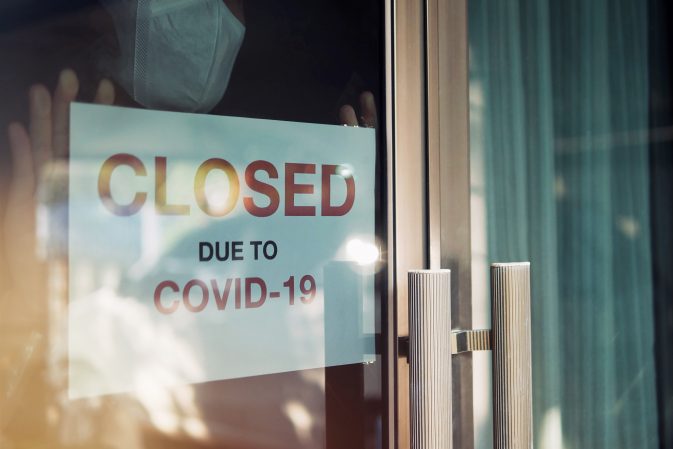Virus Restitution From China Should Go to Small Businesses

As appeared in RealClear Politics.
The coronavirus crisis has had a major impact on small businesses. Quarantines and disrupted supply chains have forced most customer-facing companies across the country to close. One recent survey estimates that 43% of small businesses will have to shutter permanently within six months unless the economy rebounds. Entrepreneurs exhausted the original $350 billion of federal funds to help small employers in less than two weeks.
Entrepreneurs, workers, and taxpayers shouldn’t bear the entire cost of this crisis. They aren’t responsible for it. The coronavirus bill should be paid by China, the country that covered up its severity, targeted whistleblowers, and dithered while the virus spread. China is not only morally but also legally responsible for unleashing this plague, which has killed over 60,000 Americans and 220,000 people worldwide so far and caused untold suffering — both emotional and economic — for millions more.
This week, President Trump announced that the U.S. would bill China for more than $160 billion in coronavirus-related claims. Missouri Attorney General Eric Schmitt also took a significant step toward holding China legally responsible by filing a recent lawsuit against the Red Dragon for its role in generating the pandemic. Any damages received should go to beleaguered small businesses, which are on the front lines of the war against the virus and will lead the charge in the country’s economic recovery.
According to a study by the United Kingdom’s University of Southampton, the number of coronavirus cases could have been 95% lower if China had acted just three weeks earlier. China waited until Jan. 23 to lockdown Wuhan, but it knew how deadly the disease was by late-December. If it had acted transparently, rather than covered up the pandemic, U.S. small businesses would still be booming.
On Dec. 26, a Chinese lab technician said that he saw samples of a new coronavirus that had an 87% similarity to SARS. Taiwan highlighted how the disease was transmissible between humans on Dec. 31, yet China refused to verify this evidence. Some Chinese doctors in Wuhan had noted this human transmission by this time, but China continued to deny it — with cover from the World Health Organization — until Jan. 20.
Instead of accepting the evidence about the severity of the disease, China suppressed it. After one Chinese doctor shared a test result of a patient with coronavirus, he was criticized for “spreading rumors.” Another doctor was forced to write a letter saying his warnings “had a negative impact.” Yet another doctor, who suspected transmission between humans, was disciplined for instructing hospital staff to wear masks, which “damaged the stability” of Wuhan.
Chinese officials arrested eight doctors and designated them as “rumor-mongers” between Jan. 1 and 3. These actions were widely broadcast on state media in an effort to dissuade others from speaking up. Wang Guangbao, a popular surgeon in eastern China, said that within medical networks knowledge of the coronavirus was widespread by Jan. 1. Yet, the arrests deterred doctors like himself from speaking out. “The eight posters getting seized made all of us doctors feel we were at risk,” he revealed.
Despite all the evidence, the head of the Chinese CDC went on state television on Jan. 15 and said, “After careful screening and prudent judgment, we have reached the latest understanding that the risk of human-to-human transmission is low.”
While China fiddled with doctors spreading rumors and denied human transmission, the disease burned through the country and spread across the world. Roughly 5 million people escaped Wuhan before it was locked down, taking the virus with them. Even though Chinese officials knew the disease had spread to Thailand, a potluck event for 40,000 people went forward in Wuhan on Jan. 18.
By the time China finally acted and quarantined Wuhan on Jan. 23, it was too late. The chance to control the virus had already passed. For these failures, China must pay restitution, just like any other entity whose fraud, cover-ups, and gross incompetence materially impacted a plaintiff. Small businesses, the biggest economic victims of China’s abuse, should be first in line to receive it.





